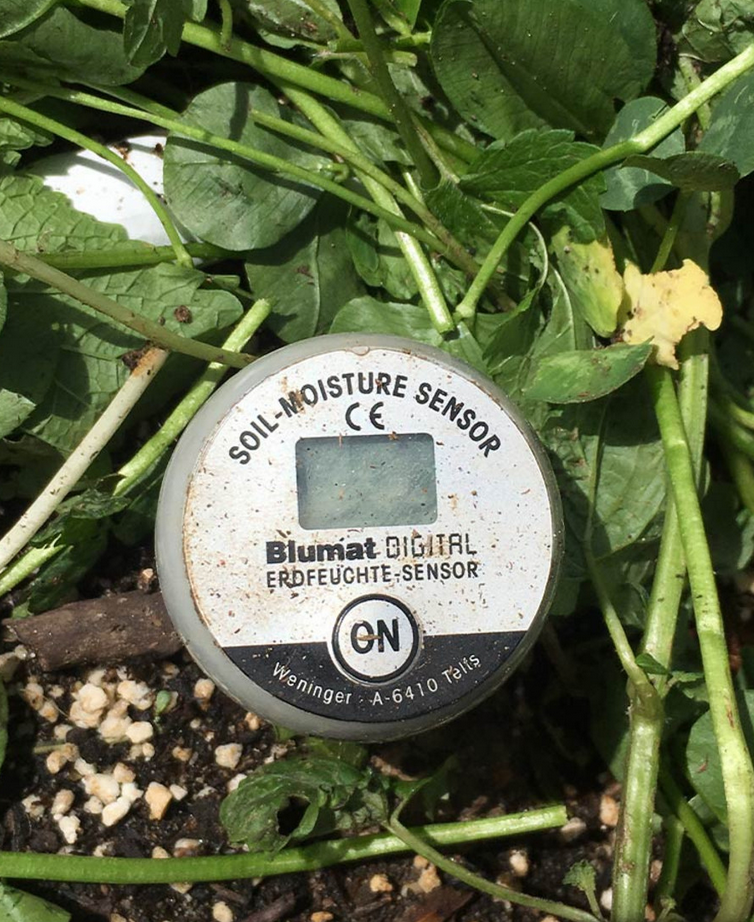The Ultimate Overview to Picking the Right Moisture Meter for Your Demands
The Ultimate Overview to Picking the Right Moisture Meter for Your Demands
Blog Article
The Ultimate Guide to Moisture Meters: A Comprehensive Introduction and How They Can Save You Cash
Wetness meters offer as indispensable devices in finding and checking moisture content in materials, aiding in stopping expensive problems and making sure the quality of products. Comprehending the nuances of various types of wetness meters, their applications, and the prospective cost-saving benefits they offer can be a game-changer for businesses and professionals alike.
Kinds Of Dampness Meters
One typical kind is the pin-type moisture meter, which measures the electrical resistance between 2 pins put right into a material. Pinless moisture meters, on the other hand, usage electro-magnetic sensing unit plates to check a larger location without causing damage to the product's surface.

Infrared dampness meters determine the thermal residential or commercial properties of a material to determine its dampness content non-invasively, making them valuable for applications where pin or pinless meters may not be appropriate. Comprehending the different kinds of wetness meters readily available can assist industries pick the most appropriate tool for their particular wetness dimension requirements.

Benefits of Making Use Of Wetness Meters
Dampness meters use invaluable advantages in properly examining and keeping an eye on moisture levels in diverse materials and environments. One of the main benefits of utilizing moisture meters is the prevention of potential damage caused by excess wetness.
Additionally, making use of moisture meters can bring about raised power effectiveness. By identifying locations with high moisture degrees, such as leakages or bad insulation, adjustments can be made to enhance power preservation and lower utility prices. In agricultural settings, dampness meters play a critical duty in optimizing plant yields by allowing farmers to keep track of dirt wetness degrees and make informed watering decisions. In general, the advantages of utilizing moisture meters extend across numerous sectors, supplying economical options and promoting better quality assurance methods.
Exactly How to Pick the Right Moisture Meter
When choosing a moisture meter, it's important to make sure that the meter is appropriate for the certain product you will be screening. Different materials have varying electrical properties that can affect dampness analyses, so selecting a meter developed for your material is critical for exact results. By carefully evaluating these factors, you can choose a moisture meter that satisfies your requirements and provides exact wetness measurements for your projects.
Appropriate Methods for Dampness Meter Usage

Expense Cost Savings With Wetness Meter Applications
How can the tactical application of wetness meters lead to significant cost financial savings throughout numerous markets? In the farming market, dampness meters help in determining the ideal time for harvesting crops, avoiding over-drying or excess wetness that can impact the last item's high quality.
Similarly, in building and construction, wetness meters assist stop pricey problems by discovering dampness degrees in building materials, such as timber or concrete, which can result in structural issues if not dealt with promptly. By recognizing trouble locations at an early stage, service providers can take rehabilitative measures to stay clear of considerable repair work or replacements, ultimately saving time and money.
Furthermore, in the food handling market, wetness meters are crucial for keeping track of product high quality and guaranteeing conformity with security guidelines. By accurately measuring wetness material in foodstuff, manufacturers can stop spoilage, preserve quality, and minimize waste, resulting in considerable cost financial savings. Generally, the critical application of moisture meters is an important investment that can lead to significant cost decreases and enhanced efficiency throughout various industries.
Verdict
Finally, dampness meters are useful devices for detecting and determining wetness levels in various materials. By utilizing the best dampness meter and following correct methods, users can successfully prevent costly damages caused by excess dampness. Investing in a top quality dampness meter can lead to substantial cost financial savings in the future by identifying potential concerns at an early stage and allowing punctual removal. Eventually, wetness meters are vital instruments for maintaining the honesty and long life of products and structures.
Moisture meters serve view it now as crucial devices in discovering and monitoring moisture material in materials, site web aiding in protecting against pricey damages and making certain the quality of items. Infrared wetness meters gauge the thermal homes of a material to identify its moisture content non-invasively, making them beneficial for applications where pin or pinless meters might not be suitable.Dampness meters use very useful benefits in precisely keeping an eye on and examining wetness degrees in varied materials and settings. In farming setups, wetness meters play a crucial role in optimizing plant returns by allowing farmers to keep track of dirt dampness degrees and make informed watering decisions.In verdict, dampness meters are valuable devices for finding and gauging wetness degrees in different products.
Report this page